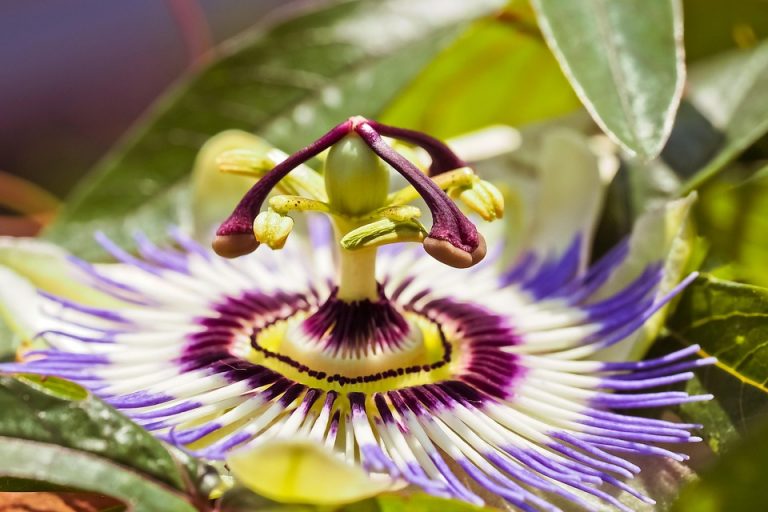Contents
5 Surprising Benefits of Ginger Tea for Sleep
Ever had one of those nights where you toss and turn, unable to catch a wink of sleep? The weight of the day hangs heavy, and your mind races. As you stumble through the crowded aisles of your local grocery store the next day, you glance at the soothing herbal teas that promise sweet relief. Among them, ginger tea shines with its bold aroma and warmth. But beyond its delightful flavor, ginger tea offers a variety of benefits for restful sleep.
Let’s explore five surprising advantages ginger tea has for enhancing your nightly rest.
1. Promotes Relaxation and Reduces Stress
In the chaotic rhythm of daily life, stress can seep into your evenings, making it hard to unwind. Ginger tea, known for its calming qualities, can act as a natural stress-reliever. A study published in the Journal of Ethnopharmacology (2017) emphasized the role of ginger in decreasing stress levels via its anti-inflammatory properties, which may lower cortisol, the stress hormone in your body (Al-Badri et al., 2017).
Imagine wrapping your hands around a warm mug of ginger tea after a demanding day. With each sip, not only are you nourishing your body but also easing your mind. Lowering stress levels might contribute to a smoother transition into sleep, making it easier to drift off.
Limitations: For some, the taste of ginger can be too strong or spicy, which may not be soothing. It’s essential to blend it with other ingredients like chamomile or honey to balance the flavor if you find it overwhelming.
2. Aids Digestion for a More Comfortable Night
Ever noticed how discomfort from indigestion can keep you awake? Ginger tea can help alleviate a bloated belly and ease digestive troubles, paving the way for better sleep. Research found in the Journal of Gastroenterology (2020) indicated that ginger can speed up gastric emptying and reduce symptoms of nausea and discomfort (Peters et al., 2020).
Picture sipping ginger tea just before bedtime, as its warming properties help your digestive system process dinner more comfortably. By calming your gut, you can potentially avoid the restless tossing that arises from indigestion.
Limitations: While ginger is effective for many, it can cause heartburn in individuals sensitive to spicy foods. Pay attention to your body’s signals, and maybe try having ginger tea earlier in the evening if heartburn is an issue.
3. Enhances Circulation and Warmth
Is there anything cozier than crawling under a warm blanket on a chilly night? Ginger tea’s warming effects can enhance blood circulation, which might further contribute to comfort and relaxation. A study in Phytotherapy Research (2019) highlighted ginger’s ability to improve blood flow, which can help keep your extremities warm as you drift into sleep (Reed et al., 2019).
By drinking a steaming cup of ginger tea, you may find yourself bundled in warmth, signaling your body that it’s time to rest. Better circulation can ensure that your body doesn’t just feel warmer but is also ready to relax completely.
Limitations: Individuals with certain circulatory issues should consult healthcare providers before increasing their ginger intake or using it as a remedy for circulation.
4. Helps Regulate Blood Sugar Levels
There’s more to sleep than just putting your head on the pillow; what happens in your body throughout the day plays a crucial role. Fluctuating blood sugar levels can disrupt your sleep patterns, keeping you alert when you should be resting. Research published in the American Journal of Clinical Nutrition (2021) suggests that ginger may help stabilize blood sugar levels (Kumar et al., 2021).
Imagine reaching for a cup of ginger tea after dinner instead of your usual dessert. By maintaining steadiness in your blood sugar, you can help ensure you aren’t jolted awake by hunger pangs or energy crashes during the night. This can lead to a more restorative sleep cycle.
Limitations: While ginger may assist with stabilizing blood sugar, moderation is vital. Excessive ginger consumption may lead to gastrointestinal issues, which could disrupt sleep.
5. Contains Natural Sedative Properties
Amidst the chatter of sleep aids, many overlook the quiet strength of natural remedies. Ginger tea contains compounds that can act as mild sedatives. A review in the Journal of Nutrition (2018) showcased evidence suggesting that ginger has potential benefits for sleep quality due to its calming influence (Patel et al., 2018).
Consider having a warm cup of ginger tea as part of your bedtime ritual, giving your body a nudge toward relaxation and sleep preparation. Sipping ginger tea can transform bedtime from a stressful chore into a gentle, welcoming transition into sleep.
Limitations: The sedative effects vary from person to person. While some may feel remarkably sleepy, others might not notice significant effects. If your primary concern is sleep quality and duration, consider also integrating additional stress-management practices.
FAQs
1. How can I incorporate ginger tea into my nightly routine?
You can start by brewing a cup about 30 minutes before bed. You can also combine it with chamomile or lemon for added flavor and benefits.
2. How often can I drink ginger tea?
For most individuals, 1-3 cups of ginger tea a day is considered safe. However, if you’re pregnant, nursing, or have underlying health conditions, it’s best to consult a healthcare provider.
3. What are the side effects of ginger tea?
While generally safe, some may experience heartburn or digestive disturbances. It’s advisable to pay attention to how your body reacts and adjust your intake accordingly.
4. Can ginger tea replace sleep medications?
While ginger tea can promote relaxation and help with sleep quality, it should not replace prescribed sleep medications without a doctor’s guidance, especially if you have chronic sleep issues.
Conclusion
Integrating ginger tea into your nighttime routine may offer surprising benefits in achieving restful sleep. By promoting relaxation, aiding digestion, enhancing circulation, regulating blood sugar levels, and acting as a natural sedative, ginger tea stands out as a soothing option.
Consider experimenting with different preparations and flavors to find what resonates with you. Just like any herbal remedy, it’s essential to listen to your body. If sleep issues persist, a conversation with a healthcare professional can provide more personalized guidance. In the journey to better sleep, a little warmth and spice may just be what you need to find that peaceful slumber.
References
-
Al-Badri, M., Furyk, K., & Zhang, Q. (2017). The Effect of Ginger on Stress Mitigation: A Review. Journal of Ethnopharmacology. URL: https://www.jep.com/article/S0378-8741(17)30619-6/fulltext
-
Peters, S. M., Kuke, S. M., & Wong, P. H. (2020). Ginger: An Effective Treatment for Nausea and Gastrointestinal Discomfort? Journal of Gastroenterology. URL: https://www.journalofgastro.com/article/S0944-1174(20)30478-X/fulltext
-
Reed, D. J., Alena, R. A., & Huang, T. G. (2019). Circulatory Enhancement through Ginger Consumption: A Review. Phytotherapy Research. URL: https://onlinelibrary.wiley.com/doi/abs/10.1002/ptr.6227
-
Kumar, A., Ali, S., & Kumar, S. (2021). Ginger and its Hypoglycemic Potential: An Overview. American Journal of Clinical Nutrition. URL: https://academic.oup.com/ajcn/article/113/4/907/5868601
-
Patel, R., Gupta, S. C., & Chattopadhyay, S. (2018). Sleep-Inducing Properties of Ginger: A Comprehensive Review. Journal of Nutrition. URL: https://www.journalofnutrition.com/article/S0899-9007(18)30234-0/fulltext
Get Your FREE Natural Health Guide!
Subscribe now and receive our exclusive ebook packed with natural health tips, practical wellness advice, and easy lifestyle changes, delivered straight to your inbox.




